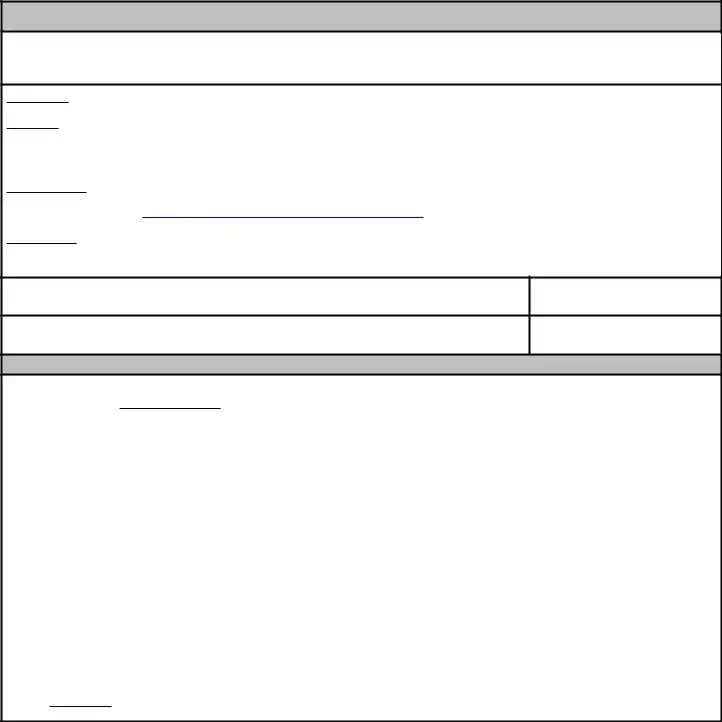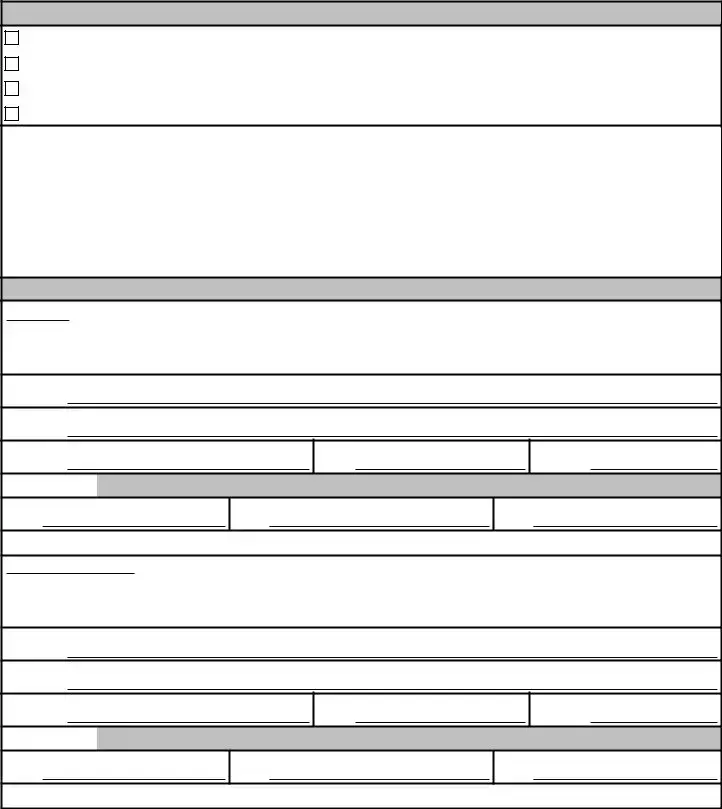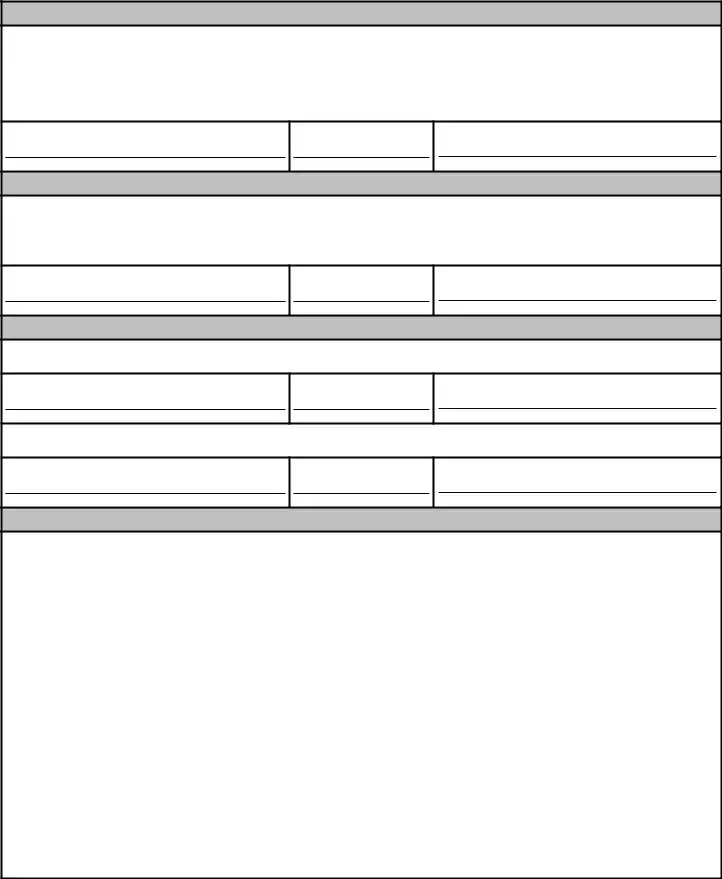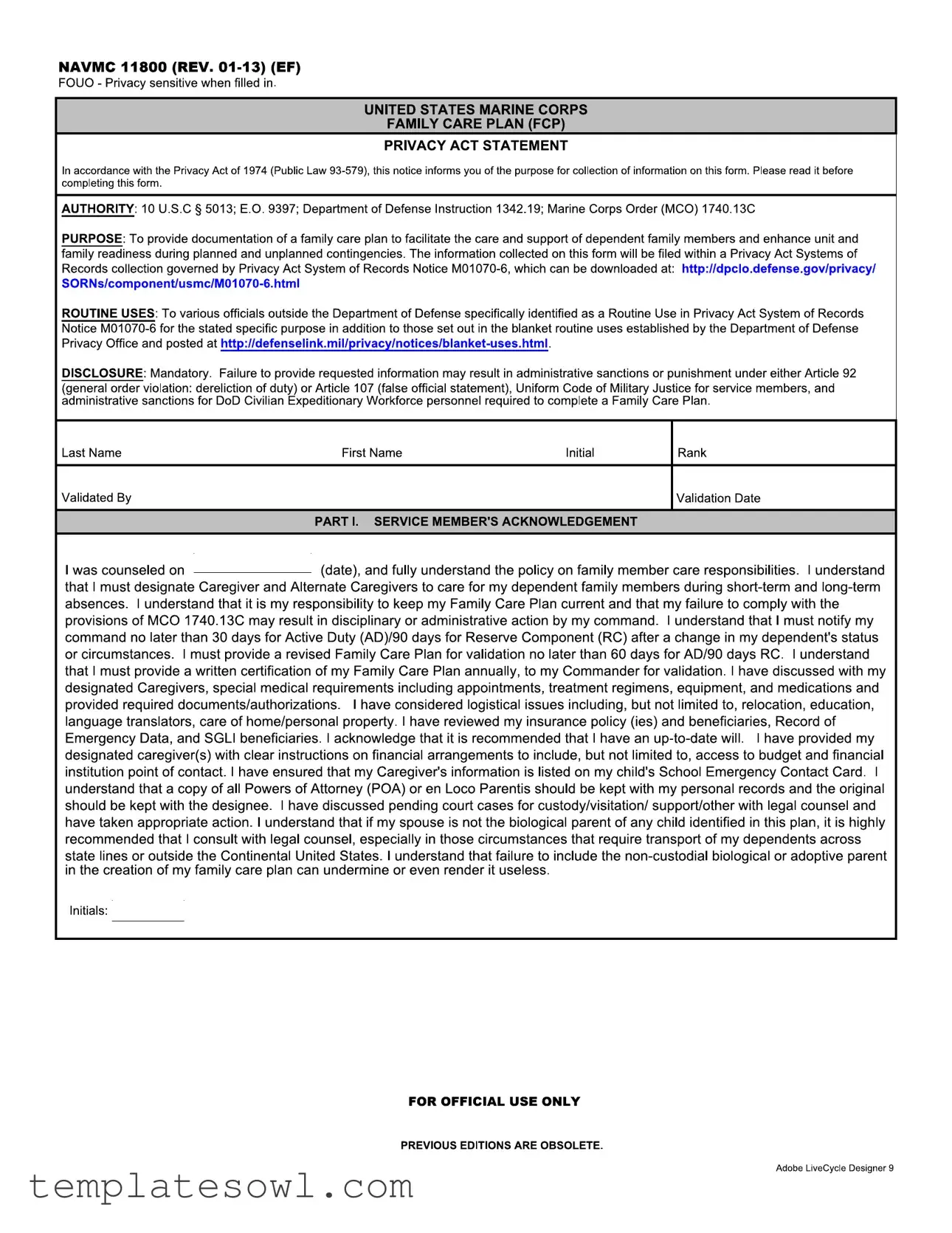Fill Out Your Navmc 11800 Form
The NAVMC 11800 form serves a vital role within the United States Marine Corps as a Family Care Plan documentation tool. Designed to ensure the well-being and support of dependent family members, this form addresses both planned and unexpected situations that may arise for service members. The information collected is governed by strict privacy laws, specifically the Privacy Act of 1974, and it is deemed privacy sensitive once filled out. Completing this form is mandatory for service members, who must detail their caregiving arrangements, including the designation of primary and alternate caregivers. Furthermore, the form requires acknowledgment of responsibilities and understanding of policies regarding dependent care. Annual recertification and updates are essential, especially in response to significant changes in the family situation. This structured approach not only emphasizes the importance of family readiness but also involves discussions about medical needs, logistics, financial arrangements, and educational issues for dependents. Ultimately, the NAVMC 11800 serves as a comprehensive guide to ensuring that the needs of dependents are met during the service member's absence, thereby enhancing overall mission readiness.
Navmc 11800 Example



Form Characteristics
| Fact Name | Fact Description |
|---|---|
| Form Number | The form is officially designated as NAVMC 11800. |
| Revision Date | The current revision date of the form is January 2013. |
| Privacy Status | This form is considered "For Official Use Only" and contains privacy-sensitive information when filled out. |
| Legal Authority | The form is governed by the Privacy Act of 1974 and multiple United States Codes including 10 U.S.C. § 5013. |
| Purpose | It provides documentation of a family care plan to assist in the care of dependent family members during military absence. |
| Mandatory Disclosure | Completion of the form is mandatory, and failure to provide accurate information may lead to disciplinary actions. |
| Annual Certification | Service members must submit an updated Family Care Plan annually for validation by their commander. |
| Caregiver Designation | The form requires service members to designate caregivers and alternate caregivers for their dependents. |
| Recertification Requirement | A service member is required to recertify the Family Care Plan periodically to ensure its accuracy and validity. |
| Consultation with Legal Counsel | It is recommended that service members consult legal counsel if certain custody or care issues arise, especially when transport outside state lines is involved. |
Guidelines on Utilizing Navmc 11800
Filling out the NAVMC 11800 form is an important step in ensuring that you have a solid family care plan in place. This process helps document arrangements for the care of your dependent family members during your absences. Here are the steps to complete the form accurately.
- Obtain the NAVMC 11800 form, which can typically be found on military installation websites or through your command.
- In the top section labeled "SERVICE MEMBER’S ACKNOWLEDGEMENT," fill in your last name, first name, middle initial, rank, and the validation date as required.
- Review the acknowledgment statement carefully. After understanding your responsibilities regarding caregiver designation, sign and date the section.
- Proceed to "PART II: DEPENDENT FAMILY MEMBER INFORMATION." Indicate your marital status and list all dependents, specifying their relationship to you (e.g., child, parent, sibling) and their age.
- Move to "PART III: CAREGIVER INFORMATION." Designate at least one caregiver by providing their name, address, and contact information, including email addresses and phone numbers (home, work, and cell).
- Complete the "ALTERNATE CAREGIVER" section with similar information for any alternate caregiver you wish to designate.
- In "PART IV: SERVICE MEMBER CERTIFICATION," confirm that you have reviewed your plan and feel confident about the arrangements made. You will also need to sign and date this section.
- Next, in "PART V: COMMAND VALIDATION," your validating official will need to sign and date to acknowledge that adequate arrangements have been made.
- Finally, in "PART VI: SERVICE MEMBER RECERTIFICATION," fill in this section again if required, ensuring to review and certify correctness by signing and dating it as well.
- If you have any additional information to add, you can use the space provided at the end of the form or attach additional pages as necessary.
Once completed, be sure to submit the form according to your command’s instructions. Keep a copy for your records. Regularly review and update your family care plan as circumstances change to ensure it remains effective and compliant with military requirements.
What You Should Know About This Form
1. What is the NAVMC 11800 form?
The NAVMC 11800 form is a Family Care Plan used by the United States Marine Corps. It provides documentation regarding the care and support of dependent family members. This plan ensures enhanced unit and family readiness during both planned and unplanned absences of service members.
2. Why is the information on this form privacy sensitive?
The information collected on the NAVMC 11800 form is considered privacy sensitive. It includes personal details about service members and their dependents. The form is covered under the Privacy Act of 1974, which aims to protect individuals’ personal information from unauthorized disclosure.
3. Who is required to complete this form?
All service members and Department of Defense Civilian Expeditionary Workforce personnel with dependent family members are required to complete this form. It is essential for those who may face deployment or extended absences to ensure their dependents are cared for in their absence.
4. What happens if someone fails to provide the required information?
Failure to provide the requested information may lead to administrative sanctions. For service members, this could involve punishment under the Uniform Code of Military Justice, specifically Articles 92 or 107. For civilians, administrative action may also occur.
5. How often should a service member update their family care plan?
Service members must keep their Family Care Plan current. They are required to notify their command of any changes to their dependent's status or circumstances within 30 days for Active Duty or 90 days for Reserve Component. Updated plans should be submitted for validation within 60 days for Active Duty and 90 days for Reserve Component.
6. What if a service member has multiple caregivers?
A service member can designate multiple caregivers for their dependents. The form allows for the listing of primary and alternate caregivers, ensuring a backup plan is in place if the primary caregiver is unable to fulfill their duties.
7. Where is the information collected on this form stored?
The information collected from the NAVMC 11800 form is stored in a Privacy Act Systems of Records collection. This is governed by the Privacy Act System of Records Notice M01070-6. Service members can access this notice online for more details regarding data management procedures.
8. Are there any recommendations regarding legal documents for dependents?
It is highly recommended that service members have an up-to-date will. Additionally, they should ensure that Powers of Attorney or any legal documents concerning their dependents are properly managed and stored, with copies kept with personal records.
9. Can a service member transport dependents across state lines?
If a spouse is not the biological parent of a child designated in the Family Care Plan, it is advisable to consult with legal counsel. This is particularly important for any transport of dependents across state lines or outside the continental United States to avoid potential legal ramifications.
10. How can service members confirm their family care arrangements are adequate?
Service members must review their Family Care Plan regularly. They must confirm that caregivers have accepted their responsibilities. Additionally, providing all necessary documents and discussing arrangements with caregivers is crucial for ensuring the plan covers all reasonable contingencies.
Common mistakes
Completing the NAVMC 11800 form is a crucial step for service members to ensure the proper care of their dependents. However, several common mistakes can hinder this process, making it vital to approach this task with attention to detail.
One frequent error relates to insufficient communication with designated caregivers. It is essential for service members to discuss their family care plans thoroughly with those they designate as caregivers. Failing to ensure that caregivers are aware of their responsibilities—such as special medical needs or logistical issues—can lead to confusion in times of crisis. This miscommunication can undermine the effectiveness of the care plan.
Another common issue is neglecting to keep the information current. Service members are tasked with updating their Family Care Plan whenever there is a change in their dependent’s status or circumstances. Many people mistakenly believe that submitting the form once is sufficient. In reality, they must notify their command of any changes, risking administrative penalties if they fail to comply.
Incorrectly completing sections that detail dependent family member information also poses a problem. For example, omitting critical relatives or failing to accurately describe their relationships can lead to misunderstandings or complications. It is crucial to list all dependents and provide corresponding information, ensuring clarity and thoroughness.
Some individuals also overlook the requirement for a written certification of the Family Care Plan. This annual certification is pivotal for command validation. Forgetting this step can lead to complications if the service member is called to deploy, leaving their dependent care arrangements in a vulnerable position.
Another significant mistake is not discussing legal matters with appropriate counsel. If a spouse is not the biological parent of a child included in the care plan, it is highly advisable to seek legal advice. Such oversight can lead to unnecessary stress and complications regarding custody or legal transport of dependents, particularly when crossing state lines or traveling outside the continental United States.
Moreover, some service members fail to include critical financial information in their plans. Caregivers need clear instructions on how to manage finances in the service member's absence. Lack of guidance in this area can complicate decisions during stressful times and affect the well-being of dependents.
Lastly, a common oversight involves neglecting to verify the information with all relevant parties. It is important for service members to confirm not only that their caregivers are aware but also that all information in the care plan is current and accurate. A lack of thoroughness in this regard can greatly diminish the effectiveness of the Family Care Plan, leading to potential issues when it matters most.
By avoiding these common mistakes, service members can create a more robust Family Care Plan, ultimately securing the safety and well-being of their dependents during their absence.
Documents used along the form
When it comes to ensuring the well-being of dependents during military service, the NAVMC 11800 Family Care Plan form is crucial. However, several other documents are often used alongside this form to provide comprehensive support and ensure all necessary arrangements are in place. Below is a list of common accompanying documents.
- Power of Attorney (POA): This document allows someone to act on behalf of the service member regarding legal and financial matters. It is especially helpful in emergencies when the service member is unavailable to make decisions.
- Record of Emergency Data (RED): This form provides vital information about dependents, emergency contacts, and any special medical needs. It ensures that caregivers and emergency personnel can access important details quickly in critical situations.
- Guardian Agreement: This agreement outlines the responsibilities of caregivers designated to look after the dependents during the service member's absence. It clarifies roles and ensures that both parties understand their obligations.
- Caregiver Training Document: Sometimes, caregivers may need guidance on specific care instructions or procedures. This document provides resource materials or training outlines to help caregivers understand their role better.
- Annual Certification of Family Care Plan: Each year, service members are required to recertify their Family Care Plan. This document confirms that the care arrangements are still valid and that the service member is continuing to meet all requirements.
These documents, along with the NAVMC 11800, work together to create a solid plan that ensures dependents will be well cared for during the service member's commitments. Keeping all forms and information up-to-date is essential for optimal readiness and peace of mind.
Similar forms
The NAVMC 11800 form serves as a Family Care Plan, outlining the responsibilities of service members regarding the care of their dependents. It shares similarities with other documents used by military personnel and various governmental bodies. Here are nine documents that are similar to the NAVMC 11800 form in terms of purpose and content:
- DD Form 1172: This form is a dependent application and provides essential information about a service member's authorized dependents, similar to how the NAVMC 11800 gathers family care information.
- DD Form 1606: Known as the application for the Reserve Educational Assistance Program (REAP), this form collects personal and dependent information, akin to the dependent details required in the NAVMC 11800.
- DA Form 5123: This is the Army Deployment Cycle Support Family Assistance Plan, which encompasses plans for caregiver arrangements, like the provisions outlined in the NAVMC 11800.
- AF Form 357: Officially titled the Family Care Plan, this Air Force document details how military members will care for dependents during their absence, paralleling the NAVMC 11800's objectives.
- DD Form 2792: This form is used for exceptional family member medical clearance, incorporating medical and care requirements for dependents that are consistent with the caregiving requirements in the NAVMC 11800.
- Form W-4: Although primarily a tax form, it includes information about a service member's dependents for tax purposes and informs decisions about financial arrangements, similar to the financial considerations detailed in the NAVMC 11800.
- Standard Form 180: This request for military records can include dependent information that supports family-related claims or needs, akin to how the NAVMC 11800 supports caregiving documentation.
- VA Form 21-686c: This application for dependency and indemnity compensation (DIC) asks for information about dependents, thereby ensuring protection and care similar to the NAVMC 11800.
- Power of Attorney Form: This legal document allows service members to designate someone to make decisions on their behalf regarding dependent care, paralleling the caregiver designation aspect of the NAVMC 11800.
Dos and Don'ts
When filling out the NAVMC 11800 form, there are several key considerations to keep in mind. Below is a list of what you should and shouldn't do:
- Do: Read the Privacy Act Statement carefully before filling out the form.
- Do: Provide accurate and complete information about all dependent family members.
- Do: Designate caregivers and alternate caregivers for your dependent family members.
- Do: Keep your Family Care Plan updated, especially after any changes in the status of your dependents.
- Do: Confirm that your designated caregivers are aware of their responsibilities.
- Don’t: Ignore the mandatory disclosure requirements of the form.
- Don’t: Leave any sections of the form incomplete or unclear.
- Don’t: Forget to notify your command of any changes within the specified timeframes.
- Don’t: Neglect to discuss special medical requirements with your caregivers.
- Don’t: Underestimate the importance of keeping all related documents organized and accessible.
Misconceptions
There are several misconceptions regarding the NAVMC 11800 form, which is vital for ensuring the care of dependents while service members are away. Understanding these misconceptions can aid in proper compliance with military policies.
- My family care plan is optional: Many service members believe that completing a family care plan is not necessary unless they have children or are married. In reality, this form is mandatory for all service members with dependents, regardless of marital status, as it provides essential documentation for care arrangements.
- Once submitted, my family care plan doesn’t need revisiting: Another common misconception is that the family care plan remains valid indefinitely. Service members must keep this plan current and notify their command of any changes in dependent status. This includes updates on caregivers or changes in living arrangements.
- The form only needs to be filled out once: Some think that filling out the NAVMC 11800 form is a one-time task. However, service members are required to recertify their family care plan annually and submit updates when significant changes occur in their personal circumstances.
- Any person can be named as a caregiver: Lastly, there’s a belief that caregivers can be anyone close to the service member. While support is crucial, there are specific requirements for caregivers listed in the family care plan, including their ability to assume responsibility during the service member’s absence.
Key takeaways
Filling out the NAVMC 11800 form is an important task for any service member with dependents. Here are key takeaways to keep in mind:
- Understand the Purpose: This form documents your family care plan to ensure your dependents are cared for during your absence.
- Privacy Matters: Keep in mind that the information you provide is privacy-sensitive. Handle it with care.
- Mandatory Disclosure: Providing information is required. Failure to do so could lead to administrative actions.
- Designate Caregivers: You must name primary and alternate caregivers for your dependents. Choose individuals who can adequately provide for their needs.
- Keep It Current: Notify your command of any changes in your dependents' circumstances within the specified time frames.
- Annual Review: A written certification of your family care plan is due to your Commander each year.
- Medical and Logistical Planning: Discuss special medical needs with your caregivers. Consider logistics like education and location.
- Financial Arrangements: Ensure your caregivers understand financial matters and access to funds if needed.
- Consult Legal Counsel: If your spouse is not the biological parent of your dependent(s), seek legal advice, especially for custody matters.
- Inclusion of Biological Parents: Engage non-custodial biological or adoptive parents in your planning to avoid complications.
Staying proactive and organized with the NAVMC 11800 form helps ensure your dependents receive the necessary care, no matter the situation. Take these steps seriously and protect your family’s future.
Browse Other Templates
Uniform Underwriting and Transmittal Summary - Detail any additional properties you own including rentals or land.
5914 - A summary of meals drawn versus returned is provided for clarity.
Incident Response Planning Phase 1 (preparation) Calls For: - Weather and snow conditions are also documented on the form.
